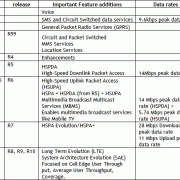ICTs for “M&E” Component of the Ag. Value Chain
Access to timely and accurate data on farmers, their households and farm activities is key for policy, decision-making and quality control for development organizations, national governments, funding agencies, project implementers, field workers, researchers and farmers themselves. Demographic data (past and present) on farm households such as land sizes, assets owned, types of soil, weather conditions, gender distribution, literacy levels, types of commodities being produced, diseases and pest, facilities for storage, among others are critical.
Unfortunately, the current status of data on developing nations’ agriculture at both local and global levels is far from reaching the stage at which policy makers can confidently draw upon for intervention due to the complexities with collection and analysis. The result is inefficient flow of resources into these communities due to under or over investments. The challenge is both socio-technical – human skills to design the necessary protocols for capturing these data as well as technological tools to facilitate the management (capturing, analyzing, sharing, etc.) of the data.
For far too long, exploring the role of ICT solutions to support value chain actors in this area have been ignored even though viable and potent ICT tools are in the market. ICT solutions identified in this component could be used in building and generating electronic forms for data gathering, help in timely access to data, facilitate easy and accurate data analysis, ensure monitoring of field activities, help in tracing of goods from farm gate to consumers, and assist in certifying commodities for quality assurance.
Potential ICT Solutions to Facilitate Agricultural Policy & Decision-Making
These are ICT solutions that facilitate accurate data capturing, analysis and sharing on farmers, their farm sizes, assets, commodities and other key identifications for enhancing policy decisions making by field staffs, governments, investors, donors and feedback into research and development. Examples of apps identified in this category includes iFormBuilder, a mobile platform for building robust forms, offline data capturing and managing data and users from any browser with the iPhone, iPod touch, or iPad with image and audio recording, GPS and mapping functionality, etc; Mobenzi Researcher that uses simple feature phones to high-end handsets to provide a tried and tested solution to enhance field research and data collection; and PoiMapper, a mobile point of interest data collection and sharing solution for affordable GPS-enabled feature phones that can make agricultural fieldwork more efficient and reliable through planning and monitoring of field activities.
Potential ICT Solutions for Traceability and Quality Assurance
These are ICT solutions to facilitate data gathering on farmers, their fields and specific information on their commodities for traceability and quality assurance. Examples include SourceTrace, a suite of ICT applications including traceability module that records delivery and transaction of data both entered manually into mobile device as well as from GPS, RFID and bar code readers, certification module for internal agricultural monitoring processes of agricultural commodity firms such as Fair Trade, and processing module that automates the capture of valuable information on the various light industrial processes of any agricultural commodity; Reliable Information Tracking System (RITS), a new coffee traceability program that is helping coffee growers become more efficient, reliable, and quality-focused by tracking deliveries of coffee from each member down to the details of what coffee varietals and quality score each lot of coffee receives; and, Integrating ICT for Quality Assurance and Marketing, a project that helps to build an internal control system for inspectors of Organic Producers and Processors Association of Zambia (OPPAZ) for quality assurance and thereby improve the value of the products for increased income.
In summary, ICTs have great potential for data management within the agricultural value chain for increased agricultural growth. Improved data used will influence how research is conducted and subsequently the kind of policy decisions that need to be made for funding and investment. For detailed information on ICT solutions for monitoring, evaluation and quality assurance visit ICT4Ag Database by GBI for an interactive experience and feedback.








































